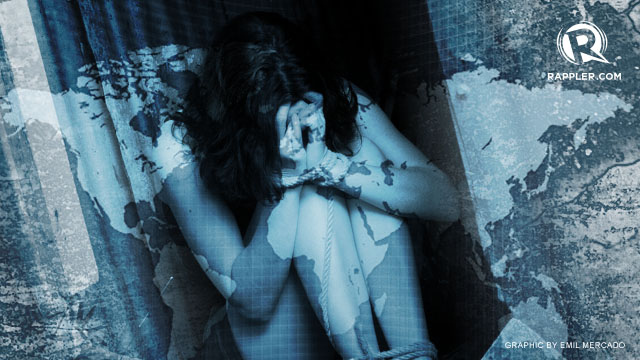SUMMARY
This is AI generated summarization, which may have errors. For context, always refer to the full article.

MANILA, Philippines – Police rescued 70 women, including 30 minors as young as 16, from an alleged human trafficking den that fed them with only a cup of rice daily, among other reported abuses.
The Philippine National Police’s Criminal Investigation and Detection Group (CIDG) said it raided on Tuesday evening, June 17, the Happy World Human Resources Recruitment Agency along Suerte Street, Pasay City, after one of the victims complained.
The victim, who is 16 years old, ran to the CIDG after escaping from the company.
CIDG director Benjamin Magalong said the 16-year-old girl was recruited to work as a domestic helper in Riyadh, Saudi Arabia.
Coming from Cotabato, she was fetched by a woman known as “Ms Ellen” at the Ninoy Aquino International Airport, Magalong said. She “was given a phony birth certificate bearing the name of a fictitious person and was told to change her age from 16 to 23.”
Magalong said the girl and around 70 others “were not allowed to use their cellphones, had to sleep on the floor, and were being fed with a cup of rice a day.”
The CIDG identified the alleged illegal recruiters only as Maisura, Nayda, Zorayda, and Baidido.
Problem plaguing the Philippines
The recruiters will be charged for violating the Migrant Workers’ Act of 1995 or Republic Act (RA) 8042, and the Anti-Trafficking in Persons Act of 2003 or RA 9208.
The Migrant Workers’ Act penalizes illegal recruitment, which involves, among other things, using false information to secure a license under the Philippines’ Labor Code.
The Anti-Trafficking in Persons Act, on the other hand, defines trafficking in persons as an act, among others, “to recruit… under the pretext of domestic or overseas employment or training or apprenticeship, for the purpose of prostitution, pornography, sexual exploitation, forced labor, slavery, involuntary servitude or debt bondage.”
Human trafficking continues to plague the Philippines, as the country, in fact, has failed to get a higher anti-trafficking rating from the United States.
The US State Department retained the Philippines’ Tier 2 rating in its annual Trafficking in Persons Report in 2013, which is a basis for granting aid.
Convictions for human trafficking have increased over the years, but these cases remain concentrated in certain areas in the Philippines. – Rappler.com
Add a comment
How does this make you feel?
There are no comments yet. Add your comment to start the conversation.